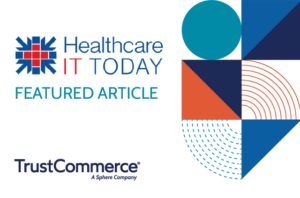Healthcare data remains a prized target for cybercriminals for a variety of reasons, including its value on the black market, the explosion in health data, and the inherent vulnerabilities of healthcare IT systems.
The cost of a healthcare data breach has increased 42% since 2020, according to IBM’s most recent annual report on data breaches. For the 12th year in a row, data breaches in healthcare had the highest average cost of any industry, at $10.1 million.
Across all industries, stolen or compromised credentials were the most common cause of data breaches, and at 327 days, took the longest time to identify. Breaches that used this attack vector ended up costing $150,000 more than the average cost of a data breach, according to IBM.
When patients’ Protected Health Information or financial information is stolen, it poses risks to identity fraud and theft, as well as patient safety. Cyberattacks on healthcare providers may cause IT system outages, which in many cases have lasted several weeks and led to considerable disruption to patient care. Multiple studies have identified an increase in mortality rates at hospitals following ransomware attacks and other major cyber incidents, according the HIPAA Journal.
How to prevent healthcare data breaches with patient financial transactions from TrustCommerce
Like all other IT systems that are integral to a health provider’s business, patient payment data can also be a target for hackers – which is why managing the risk associated with transmitting sensitive business and cardholder data must be a high priority. Information Security professionals often recommend that organizations minimize the amount of data that organizations collect. This has two major benefits. First, it makes the organization a less “rich” environment, meaning the value of compromising the organization is reduced for criminals. Second, should a compromise occur, the impact will be lessened since the amount of sensitive data on hand is much smaller. One way that health systems are reducing their “data footprint” is by leveraging patient payment solutions that allow them to securely process patient payments without transmitting, storing, or processing the payment data.
TrustCommerce, a Sphere company, provides comprehensive risk management and security for transaction processing. Our patient payment solutions allow providers to defer much of the cost, risk, and threat involved in handling sensitive cardholder information.
Some key benefits of partnering with TrustCommerce include:
- Solutions for smallest PCI footprint
- PCI validated P2PE for the greatest scope reduction
- EMV support to reduce card-present fraud
- Greater POS device choice
- Supports payment acceptance that is integrated or outside of EHR/PMS and other core business software
- Configurable, consolidated, enterprise-level reporting
Visit us to learn more about how TrustCommerce can help providers manage risk with proven payment technology.






